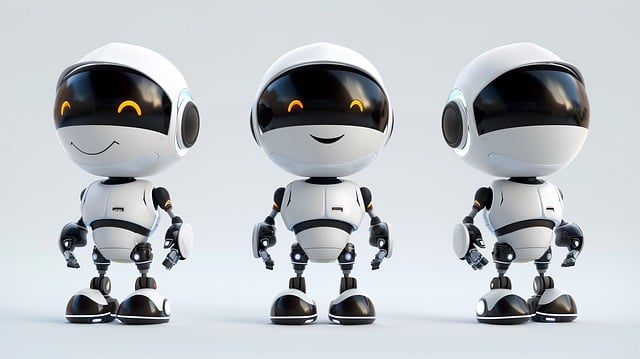2023 has witnessed a surge in Shopify merchants adopting AI chatbots as a transformative tool to enhance customer engagement and operational efficiency within e-commerce. These AI systems are seamlessly integrated into Shopify platforms, leveraging artificial intelligence to provide efficient customer service. They handle a wide range of tasks, from answering FAQs to guiding users through purchases, offering support at all times, which not only boosts user satisfaction but also frees up human staff for more complex tasks. These chatbots are equipped with sophisticated natural language processing (NLP) capabilities that allow them to understand and respond to complex queries, learn from interactions, and personalize their assistance over time. They can be tailored to reflect a brand's unique voice and service philosophy, ensuring a consistent customer interaction experience across all platforms. For Shopify businesses, this means a strategic initiative for efficient scaling of operations, improved customer interactions, and sustainable growth in the competitive online marketplace.
Integrating an AI chatbot into a Shopify store can significantly improve the shopping experience by offering immediate, personalized assistance. Customization is essential to align the chatbot with your brand's personality and support needs. Advanced features enable the chatbot to refine its responses over time through a feedback loop, becoming more adept at handling customer interactions. Key performance metrics such as response times and resolution rates should be regularly monitored using analytics tools to ensure continuous improvement of the chatbot's effectiveness and to maintain a high-quality Shopify shopping experience. The strategic deployment of AI chatbots for Shopify is not just about automation; it's about creating a dynamic, responsive, and personalized environment that can differentiate your store in the e-commerce landscape.
Revolutionize your Shopify store with an AI chatbot, a cutting-edge tool that seamlessly blends into your e-commerce platform. This article demystifies the integration of AI chatbots and their impact on enhancing customer engagement, streamlining sales processes, and optimizing overall efficiency. Dive into the mechanics of implementing this technology, learn how to engage customers proactively, and understand the analytics that measure success. Elevate your Shopify experience and stay ahead in the competitive online marketplace with an AI chatbot for Shopify.
- Unleashing E-Commerce Efficiency with AI Chatbot Integration on Shopify
- The Mechanics of Implementing an AI Chatbot into Your Shopify Store
- Enhancing Customer Engagement and Sales with Proactive Shopify Chatbots
- Measuring Success: Analytics and Improvement with Your Shopify AI Chatbot
Unleashing E-Commerce Efficiency with AI Chatbot Integration on Shopify

In today’s digital commerce landscape, Shopify merchants are leveraging AI chatbots to elevate customer engagement and streamline operations. The integration of an AI chatbot for Shopify platforms is a transformative step that infuses e-commerce efficiency with the power of artificial intelligence. These intelligent bots act as virtual assistants, capable of handling a myriad of tasks such as answering frequently asked questions, guiding users through the shopping process, and providing instant support 24/7. The result is a seamless shopping experience that not only enhances customer satisfaction but also frees up human resources for more complex tasks. By automating routine interactions, these chatbots ensure that customers receive immediate, accurate, and personalized assistance, leading to higher conversion rates and improved customer loyalty.
Furthermore, AI chatbots for Shopify are not merely limited to basic inquiries; they are equipped with advanced natural language processing (NLP) capabilities that enable them to understand and respond to a wide range of queries with an increasingly human-like nuance. This sophistication extends to learning from interactions, thus continuously improving their performance over time. Merchants can tailor these chatbots to align with their brand voice and customer service ethos, ensuring consistency in communication across all channels. The integration of AI chatbots into Shopify stores is a strategic move that empowers businesses to scale their operations efficiently, engage with customers more effectively, and ultimately drive growth in the competitive e-commerce marketplace.
The Mechanics of Implementing an AI Chatbot into Your Shopify Store

Integrating an AI chatbot into your Shopify store can significantly enhance customer engagement and streamline support processes. The implementation process begins with selecting a chatbot platform that complements your existing e-commerce infrastructure. Once chosen, you’ll need to configure the chatbot by setting up its user interface within your Shopify store, which often involves embedding code snippets provided by the chatbot service. This step ensures the chatbot appears as a seamless part of your online shopping experience.
The next phase involves customizing the chatbot’s responses and capabilities to align with your brand’s voice and customer support needs. You can program the AI to handle frequently asked questions, guide users through the purchase process, or even assist with order tracking. Advanced settings allow you to tailor interactions to common user queries, thereby improving response times and customer satisfaction. The chatbot’s machine learning algorithms will continuously improve over time, adapting to new patterns in customer inquiries and providing more accurate assistance as it learns from each interaction. This adaptive nature makes an AI chatbot for Shopify a valuable tool for businesses looking to provide immediate, helpful customer service at scale.
Enhancing Customer Engagement and Sales with Proactive Shopify Chatbots

Integrating an AI chatbot into a Shopify store can significantly enhance customer engagement and drive sales by providing instant, personalized assistance. These advanced bots are designed to understand and respond to customer inquiries in real-time, offering support throughout the shopping journey. By leveraging natural language processing capabilities, these chatbots can interact with customers in a conversational manner, guiding them through product selection, answering frequently asked questions, and providing recommendations based on user behavior and purchase history. This level of proactive engagement not only improves the overall customer experience but also increases the likelihood of conversion as customers receive immediate help, reducing cart abandonment rates. Furthermore, AI chatbots can operate 24/7, ensuring that every potential interaction is a chance to engage and convert a visitor into a loyal customer.
The integration of an AI chatbot for Shopify goes beyond mere customer service; it’s a strategic tool for sales optimization. These bots are equipped with machine learning algorithms that enable them to learn from each interaction, refining their responses over time to become more effective in guiding customers towards products they will love. They can also manage inventory updates, process orders, and even handle returns and exchanges, ensuring a seamless shopping experience. By automating routine customer service tasks, store owners can focus on core business strategies, confident that their chatbot is proactively engaging with each visitor, answering questions, and encouraging sales at every opportunity. This not only streamlines operations but also creates a more dynamic and responsive shopping environment that stands out in the competitive e-commerce landscape.
Measuring Success: Analytics and Improvement with Your Shopify AI Chatbot

When deploying an AI chatbot for Shopify, measuring its success is pivotal to understanding its impact on customer engagement and sales. To accurately gauge performance, integrating analytics tools becomes essential. These tools enable shop owners to track key metrics such as response times, resolution rates, and user satisfaction scores. By analyzing these data points, you can identify patterns in customer interactions and pinpoint areas for improvement. For instance, if the average response time is longer than desired, the chatbot’s scripting or backend integration may need optimization. Similarly, a low resolution rate could indicate the need for more nuanced conversational capabilities within the AI. Regularly reviewing these analytics allows for continuous refinement of the chatbot’s algorithms and responses, ensuring it remains an effective tool for enhancing the shopping experience on your Shopify platform. By leveraging machine learning, the AI chatbot can adapt to user behavior over time, becoming increasingly adept at handling queries and providing personalized assistance. This iterative process of monitoring performance through analytics and making data-driven improvements is key to maintaining a high-performing AI chatbot for Shopify.
Shopify merchants looking to elevate their online store’s performance can benefit significantly from integrating an AI chatbot. This advanced tool not only streamlines customer interactions but also drives sales and engagement through proactive communication. By following the outlined steps for implementation, businesses of all sizes can tap into the robust capabilities of an AI chatbot for Shopify, ensuring they stay competitive in a dynamic e-commerce landscape. Regular monitoring and analytics allow for continuous improvement, making this technology a valuable asset for any Shopify store aiming to enhance user experience and operational efficiency.
